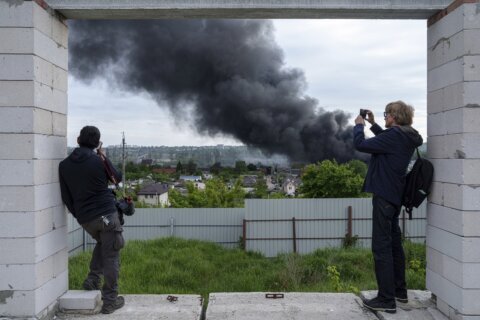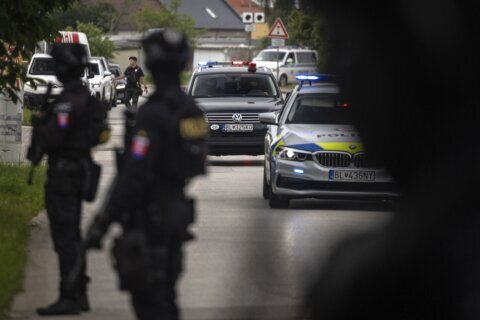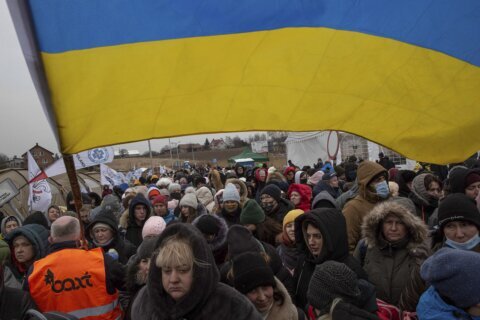BUDAPEST, Hungary (AP) — Hungarian Prime Minister Viktor Orbán says he has accepted an invitation from Ukrainian President Volodymyr Zelenksyy to hold a bilateral meeting in the future, a potential first between the two leaders since Russia’s invasion of Ukraine in February 2022.
Speaking at an annual international news conference in Budapest on Thursday, Orbán said he agreed to Zelenskyy’s proposal for a future meeting during a brief conversation between the two leaders on the sidelines of a Dec. 10 swearing-in ceremony for Argentina’s new president, Javier Milei.
“(Zelenskyy) said, ‘We should negotiate,’ and I told him I’d be at his disposal. We just have to clarify one question: about what?” Orbán said, adding that the Ukrainian leader requested a discussion on his country’s ambitions to join the European Union.
Relations between the two leaders have been fraught as Hungary has repeatedly blocked EU efforts to provide financial aid to Ukraine and refused to provide its neighbor with arms support. Orbán also has opposed Ukraine embarking on the EU membership path and is one of the only EU leaders not to have made an official trip to Kyiv as Ukraine fights against Russia’s invasion.
Last week, Orbán prevented the adoption of a 50-billion euro ($54.7 billion) EU aid package to Kyiv, the only leader in the 27-member bloc to oppose the funding. The EU requires unanimity among its members, giving the Hungarian leader tremendous leverage. However, by leaving the room when a vote was held, he allowed his counterparts to approve beginning accession talks with Ukraine.
On Thursday, Orbán said his government continues to oppose the scope and timeline of the proposed funding for Ukraine, suggesting he would maintain his position when EU leaders meet again in February.
He said the financing should not come from modifications to the EU budget but be based on individual contributions from member countries, and that plans to provide Ukraine with money over the next several years should be limited to more short-term assistance.
“The Hungarian perspective is that if we want to give money to Ukraine, then we shouldn’t give it for a five-year period because we have no idea what will happen in the next three months,” he said.
Orbán has faced increasing isolation within the EU for his position on the war and allegations that his government has systematically rolled back Hungary’s democratic checks and balances during his 13 years in power.
The bloc has withheld billions in funding because of concerns over corruption and judicial independence, though last week it granted Hungary access to 10.2 billion euros ($11 billion) to reimburse spending on approved projects after the government undertook judicial reforms.
Known as Russian President Vladimir Putin’s closest ally in the EU, Orbán took the rare step of meeting personally with the Russian leader during an October forum in Shanghai, China.
During comments to the media following that meeting, Orbán referred to the war in Ukraine as a “military operation,” the term preferred by Putin and required by Russian law.
On Thursday, Orbán defended his use of the term, saying the war in Ukraine “is a military operation” as long as there is not a formal declaration of war between the two countries.
“When the Russians declare war against Ukraine, well, then it will be a war,” he said. “Strictly speaking, let’s be happy while there is no war, because when there is war, there is general mobilization, and I don’t wish that on anyone.”
Copyright © 2024 The Associated Press. All rights reserved. This material may not be published, broadcast, written or redistributed.







